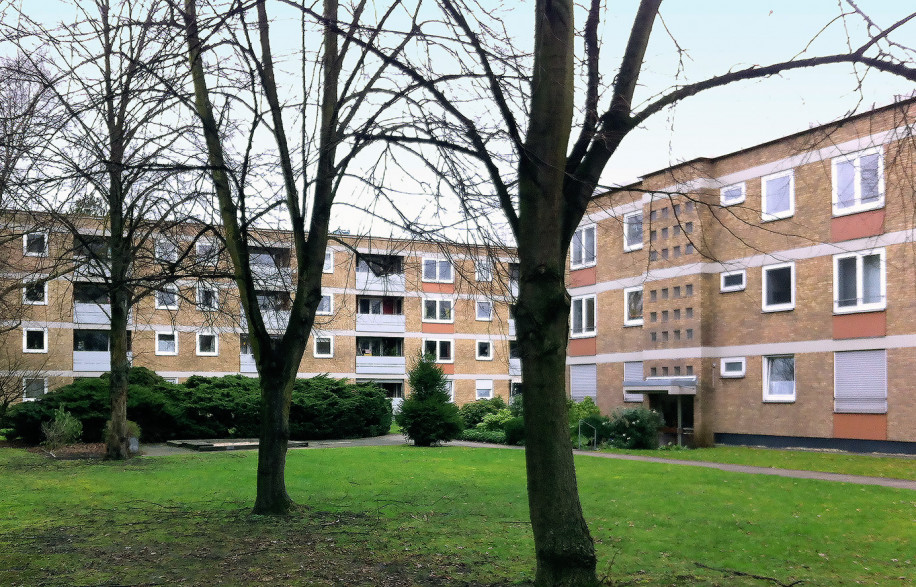
Study on serial refurbishment: ENGIE Deutschland and GWG Group accelerate energy transition in the building sector
- ENGIE Deutschland, together with Gesellschaft für Wohnungs- und Gewerbebau Baden-Württemberg AG (GWG Group), is planning and implementing a feasibility study on serial refurbishment at a residential complex in Düsseldorf.
- The results of the study open up new perspectives for the energy-efficient and economical implementation of future modernization projects.
Cologne – The building sector is seen as a key driver on the road to climate neutrality. One key to increasing overall energy efficiency in the real estate sector is serial refurbishment, which makes the energy-related renovation of buildings significantly more efficient thanks to prefabricated modules for facades, roofs and building services. In order to exploit the full potential of the modernization concept in the future, ENGIE Deutschland is conducting a feasibility study on serial refurbishment in cooperation with the GWG Group, the housing company of the R+V Insurance Group. This is to provide valuable insights into the technical, economic and legal feasibility of serial building refurbishments by the end of June 2023. The Federal Office of Economics and Export Control (BAFA) is supporting the project with funding of up to 75,000 euros. Matthias Sommer, Head of Real Estate Sales at ENGIE Deutschland and responsible for the project, explains, "In order to achieve a climate-neutral real estate stock in Germany by 2045, we need an application scheme that provides guidance for energy-efficient planning and modernization. Our feasibility study on serial refurbishment lays the foundation for this." The study object is a property owned by the GWG Group in Düsseldorf, which offers space for 106 apartments on a total of 7,526 square meters of living space. All buildings are heated with gas, were built in 1966 and have only undergone minor energy refurbishment of the building envelope.
Economical and energy-efficient renovation
As part of the feasibility study, the specialists for technology, energy and service are examining all the renovation measures in the Düsseldorf building complex in terms of cost-effectiveness and energy efficiency. Among other things, the focus is on optimizing the energy efficiency of the building envelope in accordance with the requirements of the Efficiency House Standard 55. The team of experts is coordinating this with a sustainable energy concept that is intended to exceed the requirements for the renewable energy class according to KfW. In addition, the project team is drawing up a comprehensive heat distribution and ventilation concept based on the refurbishment analyses. In addition to economic aspects, this concept also takes into account the needs of the users. ENGIE and the GWG Group will then work together to define the requirements for suitable partners to implement the construction measures. Dr. Eike Klingsch, Executive Board Officer and Project Manager CO2 strategy at the GWG Group, has high hopes for the feasibility study: "The project is of enormous importance not only for the serial refurbishment of our Düsseldorf building square, but above all for future modernization measures. We are convinced that this study will give us new impetus for the energy-efficient, rapid and cost-effective refurbishment of buildings."
Seizing the opportunity of serial refurbishment: ENGIE Deutschland and the GWG Group are working on a feasibility study for serial refurbishment within a residential complex in Düsseldorf, which will provide important insights for the energy-efficient and economical implementation of future refurbishment projects.
Your contact
ENGIE Deutschland GmbH
